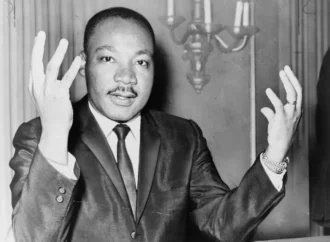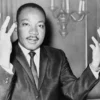In reading David Goldman’s recent column on Brexit, I was surprised to hear the following statistic:
“An April 2016 survey found that two-thirds of Israeli 11th- and 12th-year students agreed with the statement, ‘It’s good to die for our country.’” ?
But it’s true.
The survey was commissioned by the daily newspaper Israel Hayom, and found that 65% of Israeli 11th– and 12th-graders endorsed the statement originally found in Horace’s Odes. In addition, 85% of the respondents said that they either loved their country or loved it “very much.”
It’s a level of patriotism one assumes you would be hard-pressed among America’s youth. The 2014 incident in a Colorado school district—in which high school students protested efforts to “promote patriotism” in their AP U.S. History curriculum—is taken to be representative of a broad, anti-patriotic sentiment in the younger generations.
Yet, the majority of American millennials today (I’m not aware of a comparable, recent survey for teens)—89%—also claim that they “like” or “love” America.
Of course, the form that patriotism takes among these millennials looks a bit different from the patriotism of past generations. As the New York Times reports:
“In general, millennials have more appetite for egalitarian principles than older people. They may look less patriotic than the rest of America at first glance, but coming of age in the era of globalization and being a more racially diverse generation may simply mean that traditional symbols of American democracy [such as American flags] hold less meaning for this cohort. Milliennials may be less devoted to the symbols of America, but they are no less devoted to democratic ideals.”
However, this new brand of patriotism does not seem to translate into a willingness to fight for one’s country. In Israel (where military service is mandatory at the age of 18), the percentage of high school students who thought it was good to die for their country roughly corresponded with the percentage of adults willing to fight for their country—66%. By comparison, in a 2015 poll, only 44% of American adults said they would be willing to fight for their country.
The notion of national identity came of age in the Enlightenment following the break-up of religious unity in Europe. As the newly-created nations quickly discovered, securing a new national identity required inculcating patriotic sentiments among their citizens—through the creation of symbols, holidays, and education systems, among other things. These patriotic sentiments insured that there would be a populace who thought the idea of the nation-state was something worth defending, even to the point of death.
The important question may be not whether Americans are “patriotic,” but whether their new brand of patriotism can actually preserve America as we have known it.
—
Dear Readers,
Big Tech is suppressing our reach, refusing to let us advertise and squelching our ability to serve up a steady diet of truth and ideas. Help us fight back by becoming a member for just $5 a month and then join the discussion on Parler @CharlemagneInstitute!
















Leave a Comment
Your email address will not be published. Required fields are marked with *